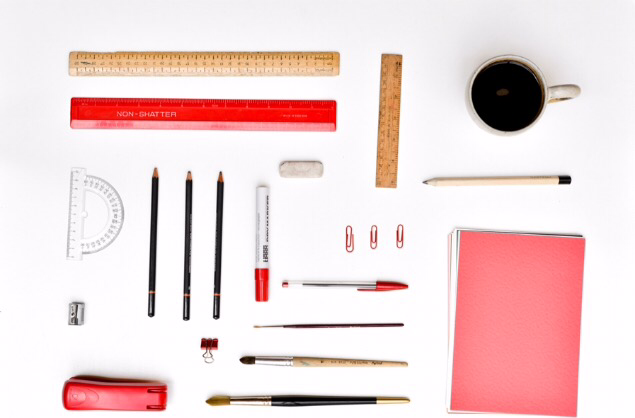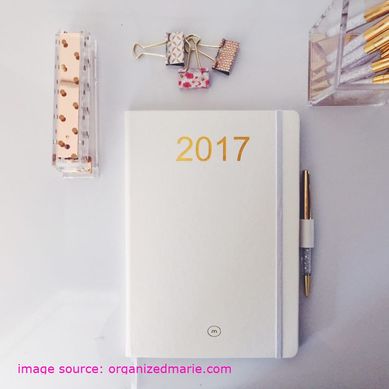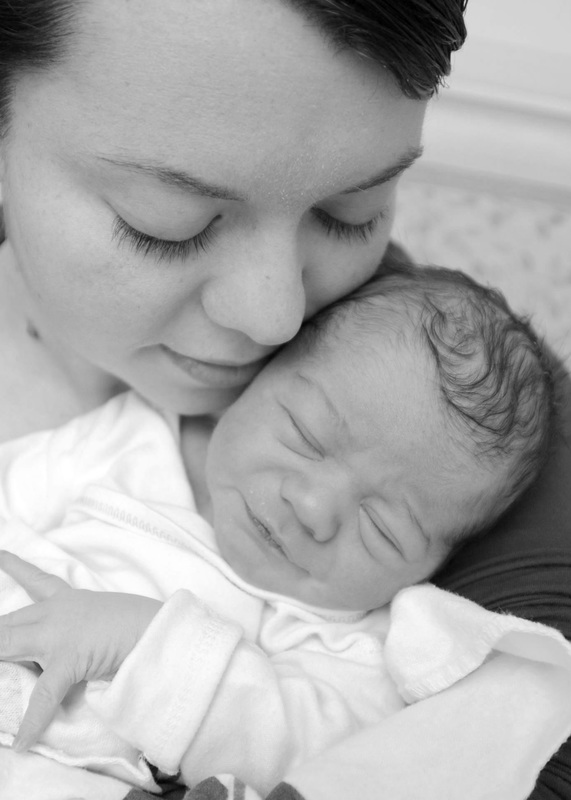If you’re having a hard day, give yourself permission to relax! 3 Strategies to Strengthen Your Relationships Through Depression Guest post by Samantha McDonald Samantha is a Life and Family Coach who mentors women through life-struggles such as depression and anxiety, helping them thrive so they can experience overwhelming peace and real joy. She is also happily married to her husband of almost 20 years. Together they have 3 children - 2 daughters and 1 son. Her two youngest have ADHD and anxiety, and her son is also on the Autism Spectrum. She loves all things Pinterest, having date nights with her husband, and family movie nights with the whole family. Life would not be complete without her furry children - 2 cats, Daisy and Oreo, and 1 crazy black lab, Ruger. It was 2:00 am. I had just nursed my daughter for what seemed like the 10th time that night, and she would not go back to sleep. So naturally, I reacted with anger. I left her in the bedroom with my husband while I went downstairs to have a temper tantrum. Slamming cupboard doors, yanking dishes out of the sink, and throwing pillows across the living room. This was my life for the first 8 months of my newborn daughter’s first year. I had waited 5 years to have my first child. We were ready and we were both excited. So when we brought her home I was expecting sweet baby cuddles, joy-filled moments, and a heart that was overwhelmed with love for my child. Needless to say that did not happen. The first year of her life was a cycle of anger, guilt, and self-condemnation. This continued for days, weeks and then months, until my husband finally suggested I go see the doctor. Once I did, changed everything. She totally understood what I was going through and placed me on a plan towards healing. During this time, I realized I had been experiencing depression all my life. It was especially difficult after the birth of my first and third child. Through medication, counseling, and help from my family, I’ve been able to win the daily battle with depression and anxiety. Now that others know more about our story, my husband and I have been asked often, “How do you support someone who is going through this life experience?” My family has had A LOT of experience helping me through these times. There are many ways my family and friends have helped me, but there are 3 key strategies that my family has implemented that help me every single day. Listen When someone is experiencing depression and anxiety, it can be very difficult for them to explain how they’re feeling. As a friend or family member who has no idea what this feels like, you may find yourself believing they’re simply not trying hard enough or tell them they need to “get over it”. Saying things like this does not help them. They need to feel free to express their feelings and be completely honest with you. This exercise is not for the faint of heart. It is a process you will need to practice every day. As my husband as told others, “I had to learn to listen with my ears open rather than my mouth." Know Your Enemy It may appear at times that your loved one is the enemy, especially if he or she is having a very difficult time controlling their emotions. As someone with a depression diagnosis myself, I was often very angry, feeling like I was constantly yelling at my family. During these times, my family had to remind themselves that I was not the enemy. I was being hijacked by an ugly, controlling disease that would not let go easily. As you are helping your loved one, keeping this perspective in mind helps you not take his or her words or actions personally. Remember, they often don’t realize what they are doing, until the damage is already done. Create a Strategy Our family had to come up with a plan for when I had a depressive episode. This strategy reflected our unique family make-up so it may look different for everyone. There are 3 ways I helped my family understand how I was feeling and how they could help me through it.
These are just a few of the strategies we’ve implemented in our own family. There may be many more that work for you and your household. If you’re looking for other strategies to help you and your family, I created a free guide, “How to Talk to Each Other About Depression”. Like the article? Let Samantha know!
3 Comments
It was nearly 70 degrees today, and if you live in the Midwest, 70 degrees in February is just as strange as hearing about snow in Florida in June. Yet, the weather didn't care that it was acting against expectation. It did what it wanted, and so we basked in the uncharacteristically warm WINTER weather. I let the boys nap in our new hammock while I read. With their little arms around me, I soaked up their cuddles. As I listened to the birds chirp, I thought about how many naps in the history of naps have been taken outside, how much more peaceful it is, and how much longer the boys slept. What was it about nature that made it so peaceful? Obviously, other people agree because a lot of "spa" music is really just nature sounds; even sound machines have brook or wind settings. Nature makes you happyWhat is it about the outside that makes you happy? The answer is in the history books. Or, Aristotle's book to be precise. Aristotle said: “The happy life is thought to be virtuous; a virtuous life requires exertion, and does not consist in amusement.” What does that have to with being outside? Many people fall into the trap of looking for happiness in pleasure (amusement). When we are amused or pleased, it is a passive action. Something is pleasing to us. We don't do the pleasing or amusing; we are merely recipients of the pleasure. That's not to say that life isn't made sweeter by such pleasures but a cupcake isn't going to give you lasting joy. Yet, when we do (rather than being a passive recipient) we have the opportunity to find happiness. We do by serving others, consciously practicing gratefulness, showing kindness to others. If Aristotle was right, then being outdoors and walking/hiking/swimming/kayaking is an exertion too. It is something we must do; it cannot be done to us. Nature helps us find joy because it forces to do. To live. To be present and active in our own life. Of course, there are many other benefits to being outside.
What do you like to do outside? How do you feel after a long day spent in nature? "The only thing you are supposed to do is to live a wholehearted life. Whatever you do: do it wholeheartedly. Whatever you want to be: be it wholeheartedly." You Are Enough Guest post by Melissa Robbins // My name is Melissa. I'm a human, wife, mother, personal trainer and life coach. I'm just trying to make the world a little better, happier and healthier. I told my crying, overtired baby that I wasn't a great mom today but tomorrow I'll be better. It was a "shot day" for my 15 month old son, so off to the doctor we went. Afterwards we dropped him off at his grandparents like we do every Tuesday. When I picked him up that afternoon I was thinking that I really needed to give him some one-on-one attention ... then I got an email for a last minute webinar so I watched it while he played. I put him in his high chair, fed him dinner and took a call from a friend I wanted to catch up with. Before I knew it he was having to visibly show me it was time for him to go to bed. Most days I'm patient and attentive but on this day I told my crying, overtired baby that I wasn't a great mom today but I'd be better tomorrow. And you know what, I'm still a great mom. I'm still enough. I don't doubt myself. Do I think I do everything perfectly? No, not even close. But that's not what I think makes a great mom, or a great anything for that matter. I don't know the true definition of perfection but I do know what it is not. Perfectionism is NOT the same thing as striving to do your best and it is NOT self-improvement. Perfectionism is really just the quickest path to anxiety, depression and life paralysis. I struggle a bit (or a lot) with bouts of depression in the winter. And typically by February I'm really having to work hard to keep myself peaceful and healthy, so this winter I've found my cure... I'm still running and walking outside even though I don't like the cold. And here is the best part, it was doctor prescribed! To equip the stroller for these winter excursions I've got all the goods: a wool seat cover to keep him nice and toasty, all the winter clothing he can fit, and even a weather shield to encompass the entire stroller. Someone actually scolded me for taking my child out in the cold for my own selfish reasons. For the record, not one part of his body was bothered by the cold. In fact, when I took him out of the stroller his back was sweaty. This exchange did not for one second make me question my parenting. It did, however, make me question our society. We live in a society that has a really, really long list of unwritten rules. Bylaws that we live by because we are "supposed" to. The way you are supposed to live, work, look, be and the things you are supposed to have. What are the consequences of breaking those rules... nothing. We are paralyzed by the fear that everyone else may not approve. We're missing the mark. In my opinion (and I think it's a good one) the only thing you are supposed to do is to live a wholehearted life. Whatever you do: do it wholeheartedly. Whatever you want to be: be it wholeheartedly. In the spirit of this holiday season I urge you to take a vow with me. Vow to give up the ever illusive perfect life and start living wholeheartedly. I promise you that I will always support you in that. There will be days that you did it all really, really well and then there will be days that you put your crying, overtired baby to bed and tell him you weren't a great parent today but tomorrow you'll do better. And you'll still be great. You'll still be enough. Sweat & Smiles, Melissa Like the article? Let Melissa know!
What do you want to be when you grow up? The age old question, plaguing everyone from decades. It's a big deal to try and think about your future self when you're only 5. Yet, children do not hesitate. They share their lofty goals with great enthusiasm. When I was in Kindergarten, my teacher asked us this question. While my best friend wrote veterinarian (she's now a nurse practitioner), I wrote down "Mommy." Even in college, I had a hard time deciding on a major because what I really wanted to was to be at home raising a brood of babies. But life went on. and I graduated with an English degree. In 2012, I finally earned my title of Mama - a job that I cherish with my whole heart and soul. Yet.... yet... as much as I have thrown my all into motherhood, I know the importance of "Me Time" and how burnout is a real threat. It's a lot of work to be needed 24/7, and as the saying goes, you cannot pour from an empty cup. Recharging yourself makes you better able to parent with patience, compassion, love, and empathy. When I'm short on me time, I'm crankier and way less patient. Even if I steal a quick 10 minutes, I'm already in a mentally better place. Self-care is critical to a healthy mind, body, and soul. 5 ways to recharge Eat breakfast first
We all know breakfast is the most important meal of the day, but it can also be the most neglected. When I'm busy getting breakfasts ready for my boys, it's easy for me to put my own breakfast last. By the time, I've fed and cleaned up the boys, I find myself already running low. I've started to prioritize my breakfast and eat first, which helps me to me more calm during the breakfast rush. Even a quick mug of coffee and a cup of yogurt takes me a long way and helps me feel ready to tackle the day. Read Reading is a great way to recharge. Before I had kids, I could devour a novel in a weekend, but my personal reading time has decreased dramatically. I know I feel mentally stimulated after reading, so I try my best to fit it into my schedule. I have the Kindle app on my phone as well as a Kindle Fire. I like reading on the Kindle Fire because it has an orange light which does not interfere with sleep, so I can read in bed at night. Exercising your brain is a great form of self-care. Hobby Finding time to cultivate your hobby is one of the hardest ways to recharge because there is frequently a larger time commitment involved. One way my husband and I keep our hobbies is to schedule it in. Some days, he'll take the kids and I can have my time to read, paint, or my favorite, take a bubble bath. Other days, I'll take the kiddos and he has the whole house to blast music and create art. Whatever your hobby is, finding ways to keep it will help you feel "like you" which of course, will recharge you. Wash your face This might seem like a no-brainer but a quick face wash can rejuvenate you. As I transition from an afternoon of chasing and wrangling the boys, I often change my clothes and wash my face before beginning the evening routine. It's a quick thing but really helps to recharge me a little. For parents working outside of the home, this is a great time to shift from "work mode" to "home mode." Changing into comfy clothes automatically relaxes you. Music Music is mood food! When I need a boost, I frequently turn to music to help. If I'm feeling stressed, I am quick to turn on the Celtic Spa Radio. If I'm feeling a bit down, I turn on the upbeat music. If I'm feeling artistic, I let the Indie folk music flow through the house. This is the easiest way to recharge because I just have to turn on the radio and let the music do the work. What is your favorite way to recharge? Comment below! You could say that tidying orders the mind while cleaning purifies it. - Marie Kondo I am no stranger to mess; in fact, it is par for the course that as I vacuum the house, the crumbs revolt and bring in the reinforcements. Apparently, it is also an unspoken rule that if I clean the windows, they must be smudged, licked, or otherwise made dirty before the day is done. Also, the laundry. Enough said. Like I said, I am no stranger to mess, but I do not like it. Getting rid of messes is a two step process: first, clean then tidy. It's easy to stay organized and on top of chores when I stick to my schedule, but it is ever so easy to get off track. I notice that when I get off track, I also start to feel disorganized mentally too. Staying organized contributes to an overall more relaxing and inviting home. Organization leads to less stress Who hasn't done the crazy "guests-are-coming-over-so-clean-all-the-things" shuffle? I, for one, have. And you know what? I don't like it because then I'm all sweaty after rushing to get a day's worth of cleaning done in 10 minutes. Staying on top of cleaning chores definitely leads to lowered stress levels because there is no "last minute rush." Organization also leads to less stress in terms of paperwork and bills. In between all of our seven moves, it was a struggle to get track of all of our important documents. So when we were finally done with storage units and temporary apartments, it was so exciting (.... yep, exciting) to set up a filing cabinet with all of our papers. No more digging around for important papers. Way less stresss! Organization leads to healthier homes When was the last time you washed your curtains? Or deep cleaned your carpets? Keeping track of less-regular chores can help make sure that you do remember to do them when it's time... which leads to a cleaner (and therefore healthier) home. Organizing saves you time Even if you put in extra time at the start of an organizational project, staying organized saves you time in the long run.
Staying organized means more time to play If you're not wasting time looking for stuff, that leaves more time ... to play. Tips to staying organized Stay consistent Once you get into a organizational routine, stick with it. There's a lot of debate on the exact number, but a lot of experts agree that it takes around 90-100 days to really establish a habit. Do your best to stay consistent. Use a planner This is my favorite favorite way to stay organized. I have used a paper planner since high school, and it's the only way for me to stay organized in terms of errands, appointments, and bills. I've tried countless apps but I'll always be a paper and pen girl. Have you ever tried a paper planner? The Organized Marie planner, which has monthly and weekly layouts, has sections for personal and work goals, appointments, and errands. Right now, you can grab this planner for 30% when you use my PROMO code: Katie30. Label the days of the week I started organizing and planning a week at glance. Starting on Sunday, I go through the week and write what needs to be done on a dry erase board. Some people might like to do it all digital with an app but I like seeing the board hanging up so I can see it when I pass by it. In addition to this, I also put my meal planning on that board too. (Meal planning is another recent organizational tool that I have come to love!) Share duties If a chore or task is not specifically labeled as Susan's task or Fred's then let's face it, it's not going to get done. Sit down with your family and divide each task or chore, then this task won't end up being neglected. Affiliate disclaimer: Some of the links on this website are “affiliate links.” This means if you click on the link and purchase something, fill out a form or just by clicking on a link, I will usually receive an affiliate commission. That said, I only recommend products, companies or services I use personally and believe will add value to my readers. I am disclosing this in accordance with the Federal Trade Commission’s 16 CFR, Part 255: “Guides Concerning the Use of Endorsements and Testimonials in Advertising.”
Love is not an emotion. (Joy is an emotion and many people do experience joy as a result of love.)
Love is an action - a decision to "will the good of another." Because love is an action, that also means that love (and consequently any and all relationships) require work. But... family life is busy. Between the constant needs of children, the demands of work, the unending household chores... how can you maintain the relationships you cherish? Of course, you show love to you family when do you things like feed them nourishing food or clean their clothes, but sometimes you need a little bit more than that to really keep those connections strong. Here are four tips to strengthen any relationship - spouse, child, or even a friend. Always tell the truth This one might seem obvious, but there's no quicker relationship damper than a lie. It's not always easy nor pleasant but having an open line of communication with your spouse is a guaranteed way to strengthen the relationship. Working through difficult situations can actually become a source of renewal in a relationship but only if the journey is not dotted with lies. For children, reassuring them of your love can help keep lying at bay. Telling lies can become a self-preservation mechanism if s/he thinks love will be withdrawn. A few weeks ago, I noticed my son had an accident but hid the evidence. I found the evidence and questioned him. He looked into my eyes and denied it - despite the fact that it was obvious. I told him I knew the truth and he looked flustered. "I didn't want to get in trouble," he explained. Of course, who would want to get in trouble? No one. I reminded him that no matter what, I always love him. Even if he does something wrong, I do not love him less. He immediately relaxed and confessed. The next day, he spilled some milk and came running to me. "Mama, I made a mess. I'm telling you the truth." At least for now, he no longer feels the need to lie about messes because he knows my love is unconditional. Wait for the right moment to give correction I recently read an article about a father who defines his parenting style as "Mary Poppins" - for every medicine (correction or discipline) he gives, he first makes sure to lay on the sugar (love). I found this to be such a brilliant way to look at parenting and how true it is! How often have you been corrected and, instead of allowing the advice to better yourself, felt only bitterness at having been corrected? Have you ever done 10 things right and received criticism on the one thing you did wrong? It doesn't feel good, does it? In any relationship, there will be a time where one person offers constructive (hopefully, it's constructive) criticism. The key to offering the advice without damaging the relationship or crushing the spirit is to be careful attention to when you offer the criticism. Whether it's a spouse or child, how you to choose to give criticism or correction can really affect your relationship. No one wants to be corrected in front of a whole group of people; if you can, pull aside your partner or child and speak privately. Don't add embarrassment to the issue at hand. Set them up to win Setting up your spouse/friend/child to win is a great way to strengthen your relationship. Why does this work? When you support someone, they feel encouraged, motivated, and loved by you which in turn creates a stronger bond between the two of you. This doesn't have to be anything extravagant; support can be something as simple as making their day easier.
Learn their love language (and yours too while you're at it) One of my favorite family-oriented books is the Love Language series by Gary Chapman. The premise of these books is that every experiences love in difference "languages." Learning the love language of your son, daughter, or spouse can dramatically affect your relationship. My older son's love language is quality time, and I see instantly how he is transformed by some good ol' one-on-one time. It doesn't matter if I buy him a boatload of new toys or spend 5 hours in the kitchen making him his favorite food or praising him for an hour, nothing says "I love you" (to him) like getting on the floor and playing trains or puzzles or building with Lincoln Logs. What are ways that you implement these four tips? Comment below! As the clock strikes midnight and the new year is ushered in, the focus shifts from the memories of the past year to the resolutions of the new year. While the energetic motivation behind some resolutions fizzles out before Valentine's Day, some resolutions really are worth pursuing. Do you want more happiness in your life? Here are 14 resolutions that, if you follow, can bring much happiness to your family during this year. 14 resolutions that will make you happiertBe yourself
There's a reason why being yourself feels so good. It's liberating, it's effortless, and it's empowering. Hiding who you are is a lot of work and is very limiting. Embrace who you are and shine. Be intentional with your inner circle Jim Rohn puts it the best: "You are the average of the five people you spend the most time with." Surround yourself with positive, encouraging, loving, and supportive people. This is especially true for kids and their friends; children are so impressionable. Choose your friends wisely. Stand up for family and friends Honesty is more than just telling the truth. Honesty also means speaking up when a lie is spoken. If a coworker makes fun of another coworker, say something. Teach your children to do the same in the school cafeteria. Living a life untethered from gossip will make you much happier. Volunteer Research tells us that volunteering has a direct impact on our happiness levels. A study from the London School of Economics demonstrated that the more people volunteer, the happier they are. Rest Sleep is essential for the human body to function properly. While many people get away with a slightly less-than-optimal amount of sleep, it is important to note that proper sleep affects your happiness level. Why? Matthew Berkeley, a scientist from UC Berkeley, reported that poor sleep quantity and quality causes the emotional systems in the brain to "run amok." Doesn't sound like an optimal environment for happy thoughts! Eat well As more awareness is being spread about the dangers of processed foods, more and more studies are revealing how food can contribute to happiness. Dr. Joe Hibbeln conducted a study and found a link between fat in the diet and emotional health. When diets are based on processed foods, the brain is denied healthy fats like Omega 3 Fatty Acids, which are essential for brain health. Eating a diet rich in organic produce, lean meats, whole grains, and health fats ensures that the body can work to the best of its ability, and that includes the brain health too! Cultivate your unique gifts This is similar to the first resolution (be yourself), but this resolution requires you to act on it. Why will this make you happier? By fostering hobbies, you will feel satisfied (and thus happier) by witnessing you grow in your own gifts. Use respectful language While this seems like just plain old manners, it's easy to lose track of respectful language. A driver cuts you off and you yell at him. Sound familiar? We then get angry at this driver and spend the next 10 minutes fuming. 10 minute of our life fuming at a total stranger. Use respectful language in all you do. Don't waste your precious moments on degrading or disrespectful language - even if the offender cannot hear you. Choose your battles wisely When I was younger, my dad would say "I'm not gonna die on that battlefield." I didn't get it at first, but he meant that he knew when to pick his battles. In doing so, we saved himself the stress (annoyance, energy) by not arguing with me. Whether you are 10 or 90, this is good advice. If you battle all the time, you will have no energy left to be happy. Never stop learning Read! Attend seminars. Watch a documentary. Keep your brain challenged. Participate in hard work Why does hard work make you happier? BBC published an article on the effects of hard work on happiness. Swedish researchers from Gothenburg University demonstrated that hard work is good for emotional health because it is the actual process of working towards a goal that makes people more satisified than the actual reaching of the goal. Emotional highs (without working) dissipated much quicker than emotional highs that followed a period of hard work. Control your emotions With emotions running unchecked, it can be hard to experience the joy in your life. Emotions are part of life; we all experience an incredible range of emotions, but that doesn't mean that we are defined by those emotions nor does it mean that those emotions control us. The first step to controlling your emotions is acknowledging them. Once you are aware of your emotions, it is much easier to work through them. Practice positivity What better way to be happier than to practice positivity! Every day, make it a point to practice positivity. This could be something as simple as thinking about the highlights of your day as you snuggle into bed. Or, it could be something like keeping a daily journal of all of your positive moments. Love The best way to be happier is love. Spread love everywhere you go. This doesn't mean just rainbows and butterflies. Love isn't a feeling; it is a decision; it is to willingly act for the good of another. Love is holding a door open. Love is giving the last piece of cake to your husband. Love is reading the extra bedtime story when you just want to go to bed. Love is making your spouse's morning routine easier by making his/her lunch. Love is going the extra mile to make sure your child is comforted. There are infinite ways to show love. Love. Love alone is the key to happiness. Let everything you do be rooted in love. Are you committing to any of these resolutions? Let us know! In November, social media is plastered with gratitude posts and 30-day thankful challenges. We all feel a little warmer and kinder to others, but what about the rest of the year? Often, when parents are thinking of ways to make their home more loving and peaceful,they focus first on eliminating yelling and harsh discipline. But having an attitude of gratitude year-round is an expressway to happier living. How an attitude of gratitude can affect your lifeIncreases optimism
When you're consciously grateful, you're more likely to live with a glass half full. Improves self-esteem When you're grateful, you are more aware of all the good in your life and the good people around you. With that much goodness, you're bound to feel a little good yourself. Feel more rested A happy heart falls asleep quicker and easier. A troubled heart tosses and turns. I don't know about you but I sure like my sleep. Bring on the gratitude journal. Decreases stress When you look for things to be thankful for, the bad stuff doesn't seem so bad. When I have a lot of big projects coming due, I find myself saying things like "At least, once I'm done, I'll have time to read my new book." I'm less stressed because I'm grateful for something in the future. Decreases blood pressure When you're less stressed, your blood pressure improves. Win win. Reduces risk of depression This is linked back to the glass half full perspective of life. Improves E.I. Being grateful and practicing gratefulness helps to improve your emotional intelligence. This has the nice affect of reducing toxic negative emotions from your life. Leads to stronger relationships A beautiful affect of a grateful heart is that your relationships will become stronger, deeper, and healthier. Why? Because you appreciate more nuances of the relationship. If you are whizzing through life, you might miss out on the little things. And people, life IS the little things. My husband preps the coffee maker for me every morning. All I have to do is hit "brew" and my miracle drug pour into the carafe. It's a little thing, but I am grateful for it. Not because it gets me my caffeine fix faster, but because it reminds me how much my husband loves me, and I am surely grateful for that love. Increases spirituality While you're working on improving your attitude of gratitude, it may flow over into your spiritual life. After all, should we not be thankful for this beautiful life we are given? What are some ways that you practice gratitude? Who doesn't love being happy? People seek happiness in all that they do. Sometimes they find happiness in all the right places, and sometimes, sadly, people waste time looking for happiness in all the wrong places. One surprising font of happiness is the iconic family tradition. It's not so much what the tradition is, but rather just the fact that it is a family tradition. The science behind why this works: The Association of Psychological Science published an article called Waiting for Merlot: Anticipatory Consumption of Experiential and Material Purchases. The study revealed that material purchases offer far less joy than experienced purchases. So, that means a vacation or a day spent zip-lining offers more lasting joy than a day spent shopping for material goods. The experiences make us happier than the goods. Why? It's all about the lead up. As our brains process waiting for an experience, we are generally happy and excited. The brain does not process the waiting period for a material possession with the same depth of feeling. Plain and simple: experiences make us happier and that happiness is far more lasting than the excitement of material item. So, what does this have to do with family traditions? What are family traditions if not an experience? Family traditions create joy because they are an experience. 4 ways family traditions contribute to familial happiness
Family traditions we love Every family has their own traditions, but here are a few of my favorite.
|
About KatieWife & Mama with a passion for peaceful parenting, natural living, homeschooling... and my daily café au lait. Archives
July 2020
Categories
All
|











